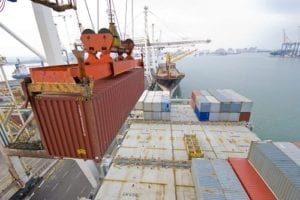Experience: Freight forwarding companies have varying degrees of expertise with certain commodities, trade-lanes, and modes of shipping. It is advisable to find a freight forwarder with general experience across all sectors and which have extensive project freight experience. Make sure the partner you chose is well-versed in the commodity and mode of shipping required.
Global: Make sure your freight forwarder has reliable offices or partners to represent them internationally, especially for any EXW, DAP and DDP shipments. There is a misconception that importing from Asia under CIF terms is most cost-effective but this is not always true. In fact, in most cases it ends up costing you triple and more in local charges. Your forwarder should guide you in making the right choices with their international partners. Back-up: The reality of overbooked vessels and airlines in peak season is something your freight forwarder should have a backup solution for. Ensure they have multiple service contracts across land, sea and air in order to offer you backup options so they can still meet your service delivery objectives. Financial stability: Your logistics partner’s financial fluidity has potential for far reaching consequences on your cargo. Finding out your cargo will not be released by the shipping line due to non-payment on the freight forwarding partner’s part is a delay and a headache you should not have to deal with. Plus, the potential for additional fines and charges, such as demurrage and detention, might have to be factored in to your budget. Make sure your potential forwarding partner is financially secure. Insurance: Marine insurance is something you need to consider for your freight. Ensure your freight forwarding partner can assist you in making sure you have correct and adequate marine insurance in place. Track Record: The key elements to a happy partnership when choosing a freight forwarder are reliability, transparency and honesty. Trusting a freight forwarding company with your business promises and deadlines requires trust and assurance of delivery. You want a forwarder who works efficiently within your budget and timelines, with open channels of communication, and that is always aware of your cargo status, so make sure you ask your prospective logistics partner for client references.
By Janine Hammond
Choosing the right freight forwarding partner can be a daunting task. The temptation is always there to base selection on price alone – a decision you might regret later. The last thing you need to be doing is managing an underperforming freight forwarder.
So how do you know which freight forwarder is the best fit for your business? Start by following these eight steps:
Research: In this digital age we have access to so much information it is relatively easy to find out what your options are before lining up prospective logistic partners. Understanding the logistics industry’s jargon, terminology, limitations and responsibilities will also help you make a more informed decision, and not be overwhelmed by terminology you don’t understand.
Communicate: In order for the freight forwarder to do their job effectively, you need to have a clear understanding of your specific freighting needs. A logistics partner will need information about your company, your procedures, your deadlines, the product, your preferences, and so on, in order to give you a holistic service offering. Take the time to communicate clearly from the onset. It will save you time and money in the long run.








